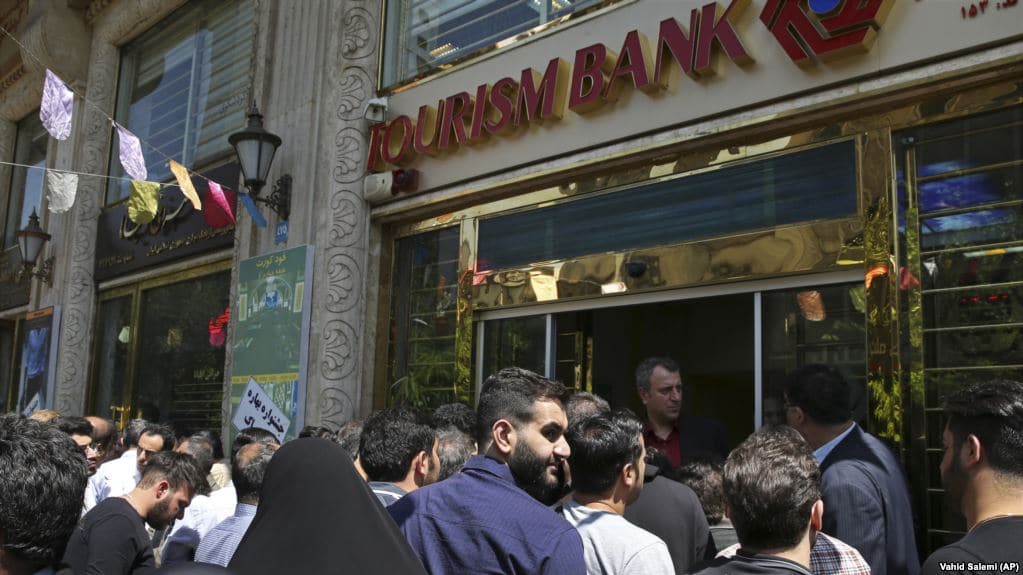Latest Government measure to check currency drop — but all others have failed so far
LATEST
Iran’s Central Bank has tightened the limits on foreign money taken outside the country amid a historic currency crisis.
A bank directive cuts the amount which can be taken by travellers, students, and businesspeople leaving by air to 5000 Euros (about $6,000) or its equivalent, half of that previously allowed. Those departing by land, rail, or sea routes are only allowed to take up to 2,000 Euros ($2,400).
The CBI also said the rules apply to bank transfers, instruments, and securities.
Amid concerns about the economy and US sanctions, the Iranian rial has fallen about 40% v. the US dollar in recent weeks, crashing through the 50,000:1 level and then 60,000:1. The previous low was about 45,000:1 in 2011-12 during the Ahmadinejad Administration, after a tightening of US, European, and international sanctions over Iran’s nuclear program.
The currency was further jolted last week when Donald Trump announced the US withdrawal from the July 2015 nuclear deal. It is listed on currency sites at about 64,000:1, but some reports say the unofficial trading level is closer to 70,000:1.
The Rouhani Government has been unable to check the slide despite the raising of interest rates, the detentions of unofficial currency traders, and the declaration of the Euro rather than the dollar as the official reporting currency. An attempt in late March to unify official and open-market rates at 42,000:1 had no effect other than to lead to a closing of many exchange offices.
The Supreme Leader has blamed the crisis on Iran’s “enemies”.
On Sunday, President Hassan Rouhani’s economic affairs team attended a closed-door session of Parliament to explain the latest emergency measures.
Did Russia Caution Iran to Compromise on Nuclear Deal?
UPDATE 1600 GMT: Claims are circulating that Reuters’ story of Moscow’s caution to Iran is based on a mis-translation of a report from Russian media:
Reuters was wrong. Mis-translation from Russian. Here is the Russian Interfax: no change in Russia position to JCPOA. In line with France, UK and Germany in order to guard Iran deal as it is. https://t.co/OkZI3KuD5G
— Shemuel Meir (@ShemuelMeir) May 15, 2018
Russia has cautioned the Iranian regime that it must compromise over an ongoing nuclear deal, following US withdrawal.
Russian Acting Deputy Foreign Minister Sergey Ryabkov said on Tuesday that the future of the Iran nuclear deal could be pursued without the Americans.
However, he added that it will be impossible to preserve the deal without Tehran making concessions.
Ryabkov did not specify the concessions, but the European participants in the agreement — the European Union, Britain, France, and Germany — have called for revisions such as an extension of time limits on uranium enrichment and centrifuge development, and a parallel agreement on Iran’s ballistic missiles.
The Deputy Foreign Minister’s remarks came a day after Iranian Foreign Minister Mohammad Javad Zarif visited Moscow for discussions. Zarif is meeting European counterparts in Brussels today.


There is still money to spend on destabilising other countries though.
.
Fuat Retweeted
Heshmat Alavi
@HeshmatAlavi
May 9
.
#BreakingNews #Exclusive
Iraq’s International Federal Police confiscates 31 boxes containing hundreds of thousands of dollars in cash en route from #Iran to #Iraq in support of Hadi al-Ameri, head of the Tehran proxy Badr Organization.